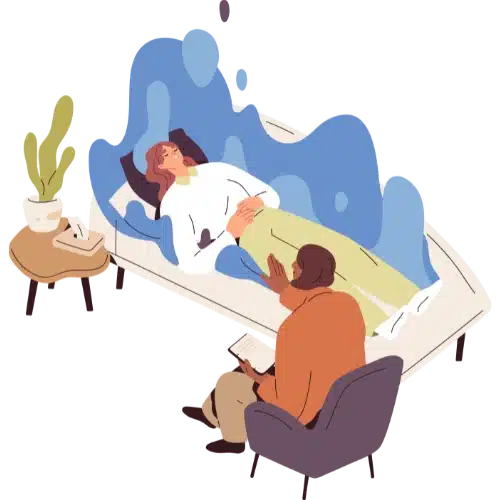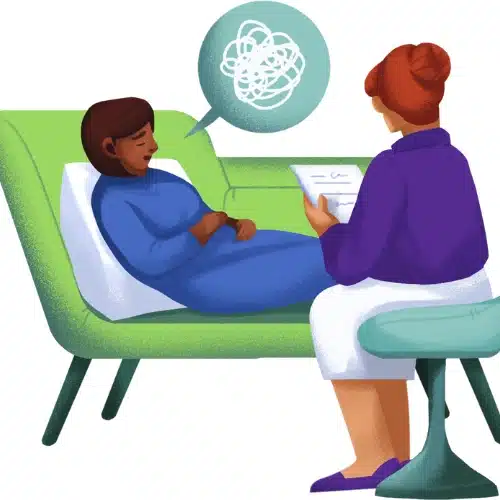Break Free. Reclaim Your Life.
Overcoming drug and substance addiction is one of the most challenging journeys a person can face, but it’s also one of the most life-changing. Our therapy services are designed to support you every step of the way, offering a safe, non-judgemental space where you can address the root causes of addiction and build a healthier, more fulfilling future.
We understand that every person’s experience with addiction is unique, which is why we create tailored treatment plans that combine proven therapeutic techniques, compassionate guidance, and practical tools for lasting change. Whether you are struggling with prescription medication, illicit drugs, or other harmful substances, we work with you to break free from destructive patterns, strengthen your resilience, and restore your sense of control.
Recovery is possible — and we are here to help you achieve it.



Ready to take the first step towards lasting change?
Contact us today to book your free discovery call or ask any questions, we’re here to help.
WHAT IS DRUG & SUBSTANCE HYPNOTHERAPY?
Drug and Substance Hypnotherapy is a specialised form of therapy that uses hypnosis to help individuals address the psychological and emotional factors underlying addiction. Rather than focusing solely on the physical aspect of dependency, hypnotherapy works with the subconscious mind to identify and reframe destructive thought patterns, triggers, and behaviours that contribute to substance abuse. Through guided relaxation and suggestion techniques, clients can develop stronger coping mechanisms, reduce cravings, and regain a sense of control over their choices. This approach can be used as a standalone therapy or alongside medical and rehabilitation programmes, offering a holistic route towards recovery. The goal is not just to stop using substances, but to rebuild confidence, restore mental balance, and create lasting positive change.
![]() Works with the subconscious mind to address the root causes of addiction.
Works with the subconscious mind to address the root causes of addiction.
![]() Helps reduce cravings and emotional triggers linked to substance use.
Helps reduce cravings and emotional triggers linked to substance use.
![]() Encourages positive behavioural change and stronger coping skills.
Encourages positive behavioural change and stronger coping skills.
![]() Complements other treatment and rehabilitation programmes.
Complements other treatment and rehabilitation programmes.
![]() Focuses on long-term emotional and mental wellbeing for sustained recovery.
Focuses on long-term emotional and mental wellbeing for sustained recovery.


BENEFITS OF DRUG & SUBSTANCE HYPNOTHERAPY?
Drug and Substance Hypnotherapy offers a unique and powerful way to support recovery by targeting the deep-seated emotional and mental patterns that fuel addiction. Unlike willpower alone, hypnotherapy works directly with the subconscious mind, helping to break the cycle of cravings, anxiety, and destructive habits. It can provide clients with a renewed sense of clarity, motivation, and control, making it easier to resist temptation and adopt healthier coping mechanisms. By addressing the emotional triggers, such as stress, trauma, or low self-worth, hypnotherapy supports not just sobriety, but long-term emotional stability. Many clients find it helps them rebuild confidence, improve self-image, and restore hope for the future.
![]() Reduces cravings and withdrawal-related anxiety.
Reduces cravings and withdrawal-related anxiety.
![]() Reprogrammes destructive thought patterns and habits.
Reprogrammes destructive thought patterns and habits.
![]() Strengthens emotional resilience and stress management.
Strengthens emotional resilience and stress management.
![]() Enhances motivation to maintain sobriety.
Enhances motivation to maintain sobriety.
![]() Supports a positive, confident, and empowered mindset for lasting recovery.
Supports a positive, confident, and empowered mindset for lasting recovery.

Looking for an Online Hypnotherapist?
Contact us today to book your free discovery call or ask any questions, we’re here to help.

WHY CHOOSE DRUG & SUBSTANCE HYPNOTHERAPY?
Choosing Drug & Substance Hypnotherapy can be a life-changing decision for those seeking to break free from the grip of addiction. This therapeutic approach goes beyond addressing surface-level behaviours—it works directly with the subconscious mind to identify and reframe the emotional triggers, beliefs, and habits that keep addictive cycles in place. Hypnotherapy is non-invasive, drug-free, and tailored to each individual, meaning it can complement other treatments or serve as a standalone method. It focuses on empowering you to regain control, boost your self-worth, and create a mental environment that supports long-term recovery. Many clients also appreciate its ability to reduce stress and improve overall wellbeing while helping them stay committed to change.
![]() Targets the root causes of addiction, not just symptoms.
Targets the root causes of addiction, not just symptoms.
![]() Non-invasive and free from side effects.
Non-invasive and free from side effects.
![]() Can work alongside medical or rehabilitation programmes.
Can work alongside medical or rehabilitation programmes.
![]() Builds confidence, self-esteem, and emotional resilience.
Builds confidence, self-esteem, and emotional resilience.
![]() Supports sustainable, long-term recovery and lifestyle changes.
Supports sustainable, long-term recovery and lifestyle changes.
ADDICTION HYPNOTHERAPY CAN HELP WITH
 SMOKING & NICOTINE ADDICTION
SMOKING & NICOTINE ADDICTION
 PHONE & ELECTRONICS ADDICTION
PHONE & ELECTRONICS ADDICTION
 SOCIAL MEDIA ADDICTION
SOCIAL MEDIA ADDICTION
 PORNOGRAPHY ADDICTION
PORNOGRAPHY ADDICTION
How it Works
We offer availability with highly experienced therapists suited to your needs and book the appointment.
Meet the practitioner and begin the road to self-improvement. Have any concerns? Let us know so we can assist.
Find a Therapist in Spain

DRUG AND SUBSTANCE HYPNOTHERAPY SERVICES
Before contacting us, please take a moment to review our Drug and Substance Addiction Therapy FAQs. Many common questions about how addiction therapy works, what to expect from hypnotherapy, session types, and pricing are answered there. This helps us provide quicker responses and ensures you have important information before starting your recovery journey. Thank you for your understanding!
How does hypnotherapy support recovery from drug and substance addiction?
 Hypnotherapy supports recovery by accessing the subconscious mind, where many of the patterns and triggers related to addiction are stored. Through guided relaxation and focused suggestion, hypnotherapy helps to reframe thoughts, reduce cravings, and strengthen motivation to stay sober. It can also address underlying emotional issues such as anxiety, trauma, or low self-esteem that often contribute to addictive behaviours. By changing how the brain responds to substance-related cues, hypnotherapy offers a powerful tool alongside traditional therapies to support lasting recovery.
Hypnotherapy supports recovery by accessing the subconscious mind, where many of the patterns and triggers related to addiction are stored. Through guided relaxation and focused suggestion, hypnotherapy helps to reframe thoughts, reduce cravings, and strengthen motivation to stay sober. It can also address underlying emotional issues such as anxiety, trauma, or low self-esteem that often contribute to addictive behaviours. By changing how the brain responds to substance-related cues, hypnotherapy offers a powerful tool alongside traditional therapies to support lasting recovery.
![]() Targets subconscious triggers and patterns
Targets subconscious triggers and patterns
![]() Reduces cravings and urges to use substances
Reduces cravings and urges to use substances
![]() Enhances motivation for sobriety
Enhances motivation for sobriety
![]() Addresses underlying emotional issues
Addresses underlying emotional issues
![]() Complements other addiction treatments
Complements other addiction treatments
Is hypnotherapy effective for all types of substance addictions?
 Hypnotherapy has shown positive results for a wide range of substance addictions, including alcohol addiction, opioids, cocaine, and prescription drugs. However, its effectiveness can vary depending on the individual’s openness to hypnosis and the complexity of their addiction. While it is not a standalone cure, hypnotherapy can significantly improve outcomes when used as part of a comprehensive treatment plan. Tailored sessions ensure that the therapy targets the specific substance and related behaviours, making it adaptable to many different addiction types.
Hypnotherapy has shown positive results for a wide range of substance addictions, including alcohol addiction, opioids, cocaine, and prescription drugs. However, its effectiveness can vary depending on the individual’s openness to hypnosis and the complexity of their addiction. While it is not a standalone cure, hypnotherapy can significantly improve outcomes when used as part of a comprehensive treatment plan. Tailored sessions ensure that the therapy targets the specific substance and related behaviours, making it adaptable to many different addiction types.
![]() Useful for alcohol, opioids, stimulants, and more
Useful for alcohol, opioids, stimulants, and more
![]() Effectiveness varies by individual and addiction severity
Effectiveness varies by individual and addiction severity
![]() Works best as part of a broader treatment strategy
Works best as part of a broader treatment strategy
![]() Tailored to specific substances and behaviours
Tailored to specific substances and behaviours
![]() Can be combined with counselling and medical support
Can be combined with counselling and medical support
Can hypnotherapy be combined with other addiction treatments?
 Yes, hypnotherapy is often used alongside other treatments such as counselling, cognitive behavioural therapy (CBT), medication-assisted treatment, and support groups. This integrative approach addresses addiction from multiple angles—physical, psychological, and behavioural. Hypnotherapy can enhance the effectiveness of these treatments by reinforcing positive coping mechanisms, reducing anxiety, and managing cravings. Combining therapies provides a well-rounded support system, increasing the chances of a successful, sustained recovery.
Yes, hypnotherapy is often used alongside other treatments such as counselling, cognitive behavioural therapy (CBT), medication-assisted treatment, and support groups. This integrative approach addresses addiction from multiple angles—physical, psychological, and behavioural. Hypnotherapy can enhance the effectiveness of these treatments by reinforcing positive coping mechanisms, reducing anxiety, and managing cravings. Combining therapies provides a well-rounded support system, increasing the chances of a successful, sustained recovery.
![]() Complements counselling and psychotherapy
Complements counselling and psychotherapy
![]() Enhances medication-assisted treatment
Enhances medication-assisted treatment
![]() Supports behavioural modification and coping skills
Supports behavioural modification and coping skills
![]() Reduces anxiety and withdrawal symptoms
Reduces anxiety and withdrawal symptoms
![]() Provides holistic addiction care
Provides holistic addiction care
What should I expect during a typical addiction hypnotherapy session?
 During a typical hypnotherapy session for addiction, the therapist will first discuss your goals and history to tailor the treatment. You will then be guided into a deeply relaxed, focused state, sometimes described as a trance. In this state, your mind is more receptive to positive suggestions aimed at changing addictive behaviours and emotional responses. Sessions often include visualisation techniques and affirmations to strengthen your resolve and reduce cravings. You remain fully aware and in control throughout the process.
During a typical hypnotherapy session for addiction, the therapist will first discuss your goals and history to tailor the treatment. You will then be guided into a deeply relaxed, focused state, sometimes described as a trance. In this state, your mind is more receptive to positive suggestions aimed at changing addictive behaviours and emotional responses. Sessions often include visualisation techniques and affirmations to strengthen your resolve and reduce cravings. You remain fully aware and in control throughout the process.
![]() Initial consultation to set personalised goals
Initial consultation to set personalised goals
![]() Guided relaxation to induce a trance state
Guided relaxation to induce a trance state
![]() Positive suggestions to alter behaviour and cravings
Positive suggestions to alter behaviour and cravings
![]() Use of visualisation and affirmations
Use of visualisation and affirmations
![]() Full awareness and control maintained
Full awareness and control maintained
Are the effects of hypnotherapy for addiction long-lasting?
 The effects of hypnotherapy can be long-lasting, particularly when combined with ongoing support and healthy lifestyle changes. By targeting the subconscious mind, hypnotherapy helps to reprogram automatic responses and thought patterns that contribute to addiction. However, lasting change requires continued commitment and sometimes booster sessions to reinforce progress. Regular follow-up and combining hypnotherapy with counselling or support groups can help maintain sobriety over the long term.
The effects of hypnotherapy can be long-lasting, particularly when combined with ongoing support and healthy lifestyle changes. By targeting the subconscious mind, hypnotherapy helps to reprogram automatic responses and thought patterns that contribute to addiction. However, lasting change requires continued commitment and sometimes booster sessions to reinforce progress. Regular follow-up and combining hypnotherapy with counselling or support groups can help maintain sobriety over the long term.
![]() Helps reprogram subconscious addiction patterns
Helps reprogram subconscious addiction patterns
![]() Supports long-term behavioural change
Supports long-term behavioural change
![]() Booster sessions may be recommended
Booster sessions may be recommended
![]() Works best with ongoing support and therapy
Works best with ongoing support and therapy
![]() Encourages commitment to recovery lifestyle
Encourages commitment to recovery lifestyle
Is hypnotherapy safe for people with co-occurring mental health conditions?
 Hypnotherapy is generally safe for individuals with co-occurring mental health conditions such as anxiety or depression, but it must be delivered by a qualified professional aware of these complexities. The therapist will tailor the approach to ensure it supports both addiction and mental health needs. In some cases, hypnotherapy can help reduce symptoms of anxiety or trauma that may trigger substance use. However, it’s important to disclose any mental health diagnoses during consultation to ensure safe and effective care.
Hypnotherapy is generally safe for individuals with co-occurring mental health conditions such as anxiety or depression, but it must be delivered by a qualified professional aware of these complexities. The therapist will tailor the approach to ensure it supports both addiction and mental health needs. In some cases, hypnotherapy can help reduce symptoms of anxiety or trauma that may trigger substance use. However, it’s important to disclose any mental health diagnoses during consultation to ensure safe and effective care.
![]() Safe when provided by experienced practitioners
Safe when provided by experienced practitioners
![]() Tailored to support mental health alongside addiction
Tailored to support mental health alongside addiction
![]() Can reduce anxiety, depression, and trauma symptoms
Can reduce anxiety, depression, and trauma symptoms
![]() Requires full disclosure of mental health history
Requires full disclosure of mental health history
![]() Part of an integrated treatment plan
Part of an integrated treatment plan
How do you tailor addiction hypnotherapy to individual needs?
 Each person’s addiction journey is unique, so tailoring hypnotherapy involves understanding your specific substance use patterns, triggers, emotional background, and recovery goals. The therapist conducts a thorough assessment before designing sessions that focus on your needs, whether that’s managing cravings, healing past trauma, or building self-confidence. Techniques and suggestions are personalised to maximise effectiveness and ensure you feel comfortable throughout the process.
Each person’s addiction journey is unique, so tailoring hypnotherapy involves understanding your specific substance use patterns, triggers, emotional background, and recovery goals. The therapist conducts a thorough assessment before designing sessions that focus on your needs, whether that’s managing cravings, healing past trauma, or building self-confidence. Techniques and suggestions are personalised to maximise effectiveness and ensure you feel comfortable throughout the process.
![]() Comprehensive initial assessment
Comprehensive initial assessment
![]() Focus on individual triggers and behaviours
Focus on individual triggers and behaviours
![]() Personalised suggestions and techniques
Personalised suggestions and techniques
![]() Flexible session structure to suit your pace
Flexible session structure to suit your pace
![]() Emphasis on your comfort and goals
Emphasis on your comfort and goals
Will hypnotherapy help with cravings and withdrawal symptoms?
 Hypnotherapy can be very effective in managing cravings and easing withdrawal symptoms by calming the nervous system and retraining the brain’s response to triggers. Through relaxation techniques and subconscious suggestion, it helps reduce the intensity and frequency of cravings. While it cannot replace medical detox for physical withdrawal, hypnotherapy provides valuable psychological support during recovery, helping clients feel more in control and less overwhelmed.
Hypnotherapy can be very effective in managing cravings and easing withdrawal symptoms by calming the nervous system and retraining the brain’s response to triggers. Through relaxation techniques and subconscious suggestion, it helps reduce the intensity and frequency of cravings. While it cannot replace medical detox for physical withdrawal, hypnotherapy provides valuable psychological support during recovery, helping clients feel more in control and less overwhelmed.
![]() Calms nervous system and reduces stress
Calms nervous system and reduces stress
![]() Retrains brain responses to addiction triggers
Retrains brain responses to addiction triggers
![]() Decreases intensity and frequency of cravings
Decreases intensity and frequency of cravings
![]() Supports psychological coping during withdrawal
Supports psychological coping during withdrawal
![]() Complements medical detox and treatment
Complements medical detox and treatment
Do you offer drug and substance addiction therapy sessions online?
 Yes, we offer online hypnotherapy sessions for drug and substance addiction to provide flexible, accessible support no matter where you are. Online therapy is delivered through secure video platforms, ensuring privacy and effectiveness similar to in-person sessions. This option is ideal for those with busy schedules, mobility challenges, or who live in remote areas. Our therapists ensure personalised care and remain fully engaged to guide you safely through your recovery journey.
Yes, we offer online hypnotherapy sessions for drug and substance addiction to provide flexible, accessible support no matter where you are. Online therapy is delivered through secure video platforms, ensuring privacy and effectiveness similar to in-person sessions. This option is ideal for those with busy schedules, mobility challenges, or who live in remote areas. Our therapists ensure personalised care and remain fully engaged to guide you safely through your recovery journey.
![]() Secure, confidential video sessions
Secure, confidential video sessions
![]() Flexible scheduling to suit your needs
Flexible scheduling to suit your needs
![]() Accessible from anywhere in Spain and beyond
Accessible from anywhere in Spain and beyond
![]() Same personalised care as in-person therapy
Same personalised care as in-person therapy
![]() Ideal for busy or remote clients
Ideal for busy or remote clients
Where in Spain do you offer addiction therapies?
 We offer addiction hypnotherapy services throughout Spain, including major cities such as Madrid, Barcelona, Valencia, Seville, Malaga, and Marbella. Our therapists also provide online sessions, making support available nationwide regardless of your location. Whether you prefer face-to-face appointments or the convenience of online therapy, we are committed to helping individuals across Spain access professional addiction treatment tailored to their needs.
We offer addiction hypnotherapy services throughout Spain, including major cities such as Madrid, Barcelona, Valencia, Seville, Malaga, and Marbella. Our therapists also provide online sessions, making support available nationwide regardless of your location. Whether you prefer face-to-face appointments or the convenience of online therapy, we are committed to helping individuals across Spain access professional addiction treatment tailored to their needs.
![]() Services available in major Spanish cities
Services available in major Spanish cities
![]() Face-to-face sessions in select locations
Face-to-face sessions in select locations
![]() Nationwide online therapy options
Nationwide online therapy options
![]() Flexible arrangements to suit your lifestyle
Flexible arrangements to suit your lifestyle
![]() Committed to accessible addiction support
Committed to accessible addiction support



